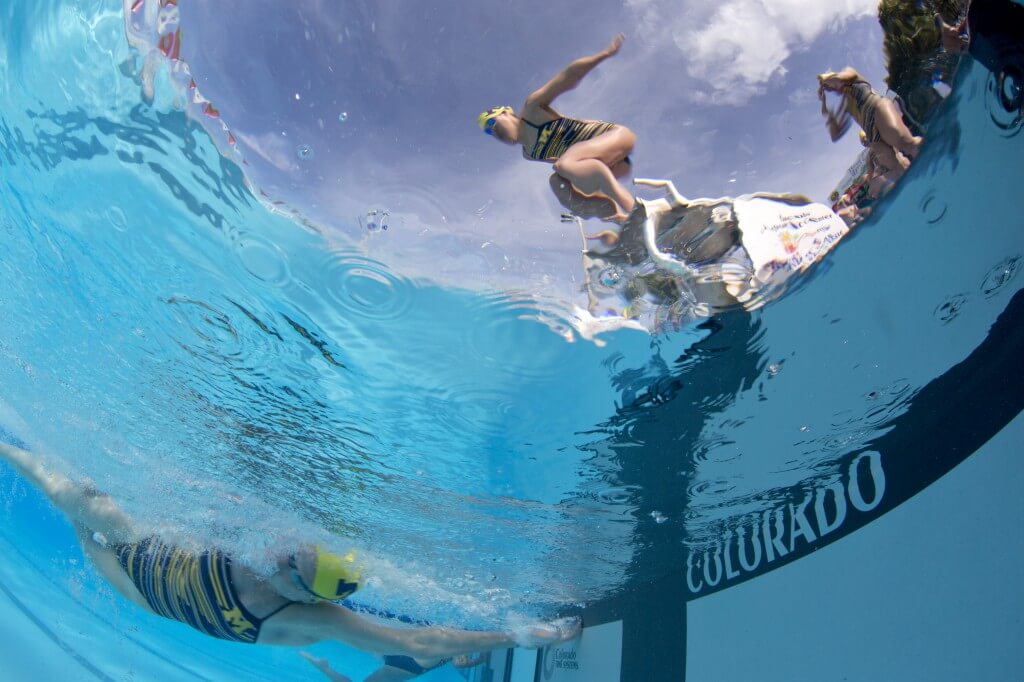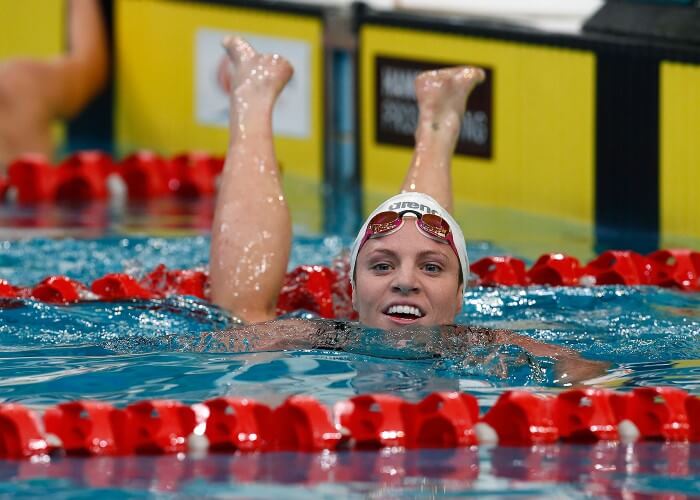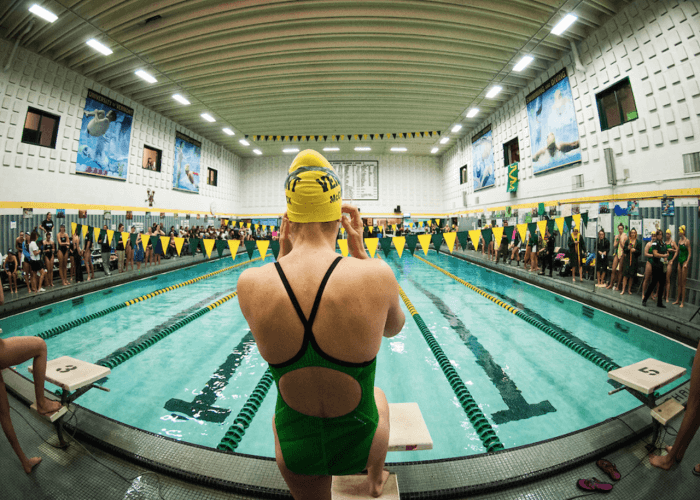The 3 R’s of Winter Training

By Lillian Nelson, Swimming World College Intern
It’s that time of the year again! Time for cozy blankets by the fireplace, cookie baking with grandma, Mariah Carey’s “All I Want for Christmas is You” to be played on a loop…and the most limit-pushing, butt-kicking, extra-frequent training of the year.
We all go through it every year, whether it is club swimming’s holiday training, or college swimming’s training trip.
Our mid-season rest meets are over and done with Thanksgiving break has come to a close, and it is time to start back on the heavy training grind once again. This roughly two-week-long snippet out of the season is a time when all we have to do is eat, sleep, and train. The factor of school will be taken out of the equation. So if we don’t have to spend a few hours every day in class, why not replace it with practices?? It’s beat down time.
So as you listen to your coach explain the next crazy set, as you swim until your arms go numb, and as you fall asleep while eating your dinner, keep in mind the 3 R’s of Winter Training: resilience, recovery, and refocus.
1. Resilience is hugely important to swimmers, and all athletes for that matter.
When we are in the middle of a main set, our arms and legs feel like lead, the water we are swimming through feels more like molasses, and we feel like we could just sink to the bottom of the pool at any time, it is easy to let those painful factors get the best of us.
But the truth is, swimmers are among the healthiest individuals in the world. We workout like it’s nobody’s business, and in turn lead extremely healthy lifestyles. Your body can handle a lot more than you think it can.
This is the mental part of the sport. Realizing that the pain is only temporary, and that you will make it through the end of practice–and be a better athlete because of it–can free up your body to take control and do its job.
The sets that are written up on the board are not going to change. But what you can control is how you approach the challenges presented to you. It is easy to have a bad practice when you have a bad mentality. But if you trust your body to get you through and take it one set at a time, you’ll be surprised at what you can do.
2. Recovery is perhaps the most important thing swimmers can do for themselves.
Sufficient amounts of sleep, correct nutrition, hydration, stretching, ice baths, heating, rolling out, and whatever else you need to do…DO IT.
If your body cannot properly recover after a practice, there is no way you will be able to even come close to performing at your full capacity at the next one. Once your body gets run down, then things like illness and injury become common.
Once again, the practices your coach writes and gives out are not going to change. It is your responsibility to yourself and your team to give yourself the fuel, rest, etcetera that is needed in order for you to build up and move forward with your training–not face plant and take two steps backwards.
3. Refocus should be should be a common concept at every practice, in a couple senses.
For starters, every practice is a chance for you and your team to get better. You may be sore, and fatigued, but reminding yourself to refocus and reset at the beginning of each practice can allow you to start it off with a clean slate and do what needs to be done for the next two to three hours.
In a broader sense, this is the time for us to check in with where we are at progress-wise in relation to your set goals for the end of the season. It’s not likely you are resting for any meets any time soon, so now is the time to really push your limits.
If you are not where you want to be yet, do a little extra. Challenge yourself more than you normally would. If you are right on track or ahead of where you thought you would be by now, that’s awesome. But there is always room for improvement. Keep doing what you are doing, and make yourself better every single day.







Another great article.